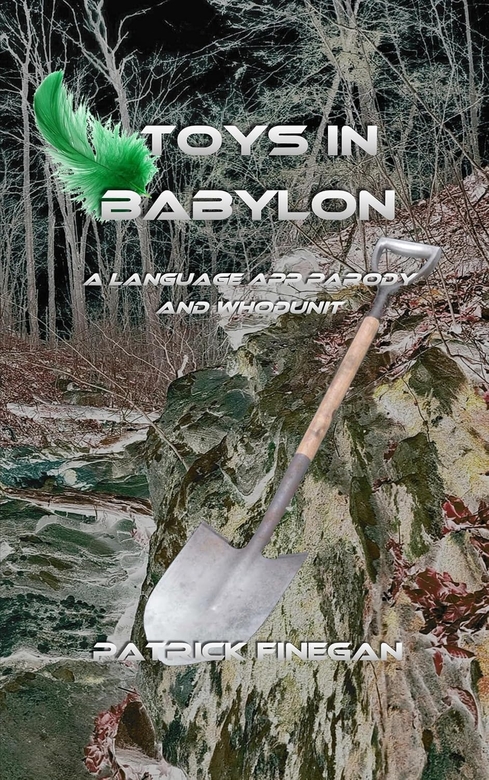
Whip-smart satire and a cutting-edge premise make Toys in Babylon: A Language App Parody and Whodunit by Patrick Finegan a tongue-in-cheek romp for savvy language lovers everywhere.
The animated avatars of a popular language-learning app begin to panic when their mascot, Coki Bear, turns up missing, leaving the town of Cokville leaderless. Between filming reality television and responding to the prompts and stories that fuel their online world, these colorful characters hunt for their missing friend, but they’re not the only ones who’ve noticed her absence.
The programmers at the Cok Dilli company are stupefied when their irritatingly attentive brand-name bear suddenly vanishes from the platform, as though someone has deleted the whole digital soul of the tiny pink ursine. Trying to manage damage control and crack the case without losing a step or worrying their shareholders may prove too much for the dwindling human staff. The real question is, when a virtual creature is infused with genuine artificial intelligence, is wiping away their digital existence all that different from murder?
Bursting at the seams with wordplay and whimsy, this pun-packed whodunit takes readers into the secret lives of meta-verse denizens and their real-world creators, making for a surreal and allegorical ride through our complex contemporary landscape. Those who are familiar with the DuoLingo app will clearly see the parallels between Coki Bear and Duo (the pestering green owl) and the “motivational propaganda” of language-learning apps, but this novel also satirizes the tech world writ large, artificial intelligence, and modern culture, so no reader should feel fully left out of the joke.
As debates over education rage and defunding continues, particularly in the United States, a book examining the fate of human teachers and the role of technology in the classroom has never been more relevant. The plot doesn’t limit its social critiques to tech, however, delving into immigration and wall-building to protect specific interests, along with challenging gender norms, intellectual property law, and addictions of all kinds. The multilayered, reality-blurring story can be difficult to follow at times, but the wry comedic moments remind readers that the author knows precisely what tale he’s trying to tell.
While there are plenty of strange and entertaining elements to the plot, the book is ultimately a vehicle for linguistic gymnastics and the pure pleasure of words. It relentlessly pokes fun at the hiccups, tangles, and paradoxes of language, from English and German to French, Klingon, and even a bit of High Valyrian. Exploring different ways that language is used, manipulated, evolved, and destroyed, what begins as a somewhat harmless story becomes a powerful reminder that language, communication, and connection are truly the driving forces of humanity, rather than technology, profits, and corporate domination.
From an editorial perspective, a final manual proofread is recommended, particularly with the prose containing words from so many different languages, and where so much of the wordplay is subtle. Overall, Finegan delivers a beautifully bizarre and thought-provoking novel, one that poses crucial questions for real-world society, delivered with linguistic confidence and inimitable creativity.
Book Links
STAR RATING
Design
Content
Editing
Get an Editorial Review | Get Amazon Sales & Reviews | Get Edited | Get Beta Readers | Enter the SPR Book Awards | Other Marketing Services























Leave A Comment